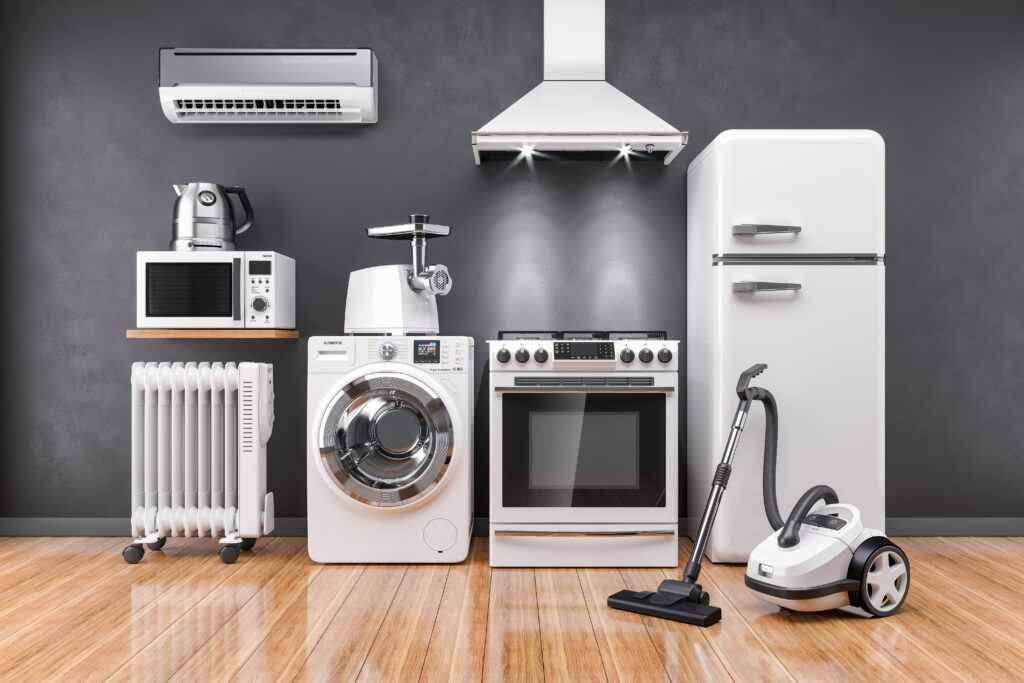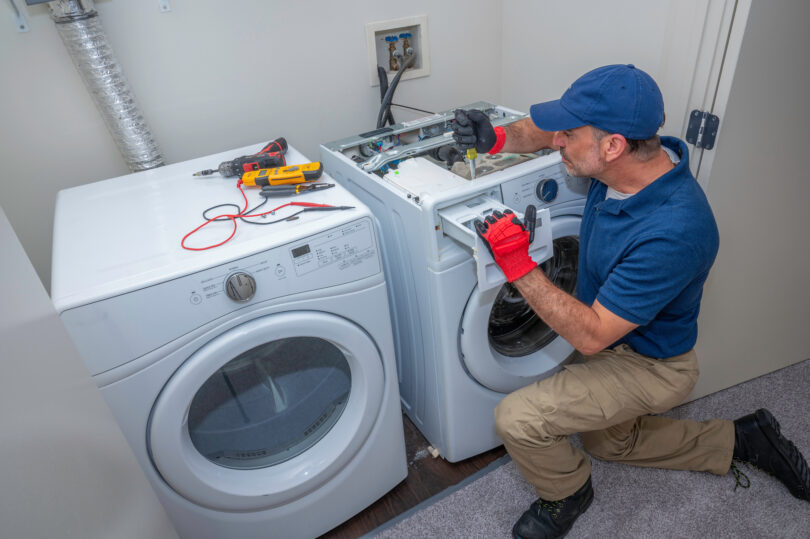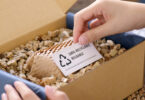Appliance repair businesses have a bright future. Don’t believe me? Just look at the stats: the annual revenue from the Australian household appliances market was $5.7 billion as of 2023. As such, appliance repair businesses often have their hands full, which means starting an appliance repair business may be a good idea if you have a knack for fixing appliances.
If that sounds like it would float your boat, here are five steps for starting and growing an appliance repair business.
#1: Write a business plan
To launch your appliance repair business you will need a business plan. A business plan highlights company goals and how they will be achieved. It essentially is a roadmap that defines your market, your appliance services, and your target customers.
Will you offer only washing machine repair services to Brisbane residents? Or will you also offer air conditioning repair services as well, perhaps interstate or in regional areas.
You can benefit from conducting a market and industry analysis as part of your business planning. Know the market demands. Determine who your competitors are and where they fall short. Then include all these findings in your business plan. You should also specify in your plan your unique selling proposition (USP). This will depend on your market analysis findings.
Assume you want to offer dishwasher repair services in Melbourne. As part of your market analysis, you’ll need to check which companies offer the same appliance repair services. Check their prices and the specific deliverables they have. Are their prices low? Do they offer warranties? If the answer is “no”, then then consider making your USP you could include in your plan could be competitive prices and extended warranty.
Include financial projections as well. How much money will you need to start your business? Where will you get the money? Include your earning projections and the specific steps you’ll take to generate them. And remember the more detailed your business plan, the better.
#2: Develop the necessary skills
To become a domestic appliance service technician, you generally have to complete a VET qualification in Appliance Servicing. Enrol in a VET course and complete training in one or more specific fields, depending on the types of appliances you wish to service. For this, you can check out the Your Career website, an Australian government initiative that allows consumers to compare VET training providers.
#3: Invest in quality tools
There are essential tools you will need to repair appliances for customers. Depending on the types of appliances you’ll be repairing, you may need:
- screwdrivers;
- pliers;
- wrenches;
- torches; and a
- tape measure.
Sure, buying quality tools for your appliance repair business can be expensive, and you should be prepared to shell out up to $900 annually. If you have the budget, invest in tools offered by leading tool brands with a proven track records like Felo and Fenix; they will last longer.

#4: Navigate legal and regulatory requirements
You can’t start an appliance repair business without navigating the legal and regulatory landscape. Choose your business structure and register your business. In Australia, there are four business structures to choose from:
- Sole trader: Has the simplest structure and gives you full control;
- Company: While more complex, it limits your liability since it’s creates a separate legal entity.
- Partnership: This is made up of two or more people. The income and losses are distributed between the two partners.
- Trust: The trustee is responsible for business operations.
#5: Apply for the relevant licences and other business requirements
You may also need licences to operate legally in Australia. The types of licences you may require will vary depending on the nature of your business and your location. Have a look at the Australian Business and License and Information Service website and answer the questions that are specific to your business. You’ll get a list of the licences you may need to apply for before you start your appliance repair business.
While you’re at it, apply for an Australian Business Number ABN) as well: an 11-digit number that uniquely identifies your business. Just go to the Australian Business Register website to apply.
You may also consider investing in business insurance to cover your appliance repair business assets. That way, if you lose or damage your valuable equipment, you’ll be covered and won’t have to purchase it all again.
Make sure the person on the tools the holds the required licence to do the work. For example, you may need a refrigerant handling licence to service refrigeration and air conditioning equipment. And an electrical occupation licence is needed to work on electrical installations that operate at specific voltages.
#6: Invest in marketing and branding
Branding is a great way to set your appliance repair start-up apart from the competition. So, get a logo designed and create a catchy and relevant tagline for your appliance repair business. It doesn’t have to be complicated; the simpler the better.
Once you’ve taken care of branding, move on to marketing and create:
- a website and social media profiles that clearly display your logo, tagline, and what you do; and
- a Google Business Profile for your business, which makes it easier for people to find your business when they’re searching for appliance repair services in their area.
#7: Prioritise customer service and operations
Customers often make purchase decisions based on the kind of customer service quality they receive. As such, prioritising customer service at every turn will only help grow your appliance repair business.
So, ensure everyone in your business communicates effectively with customers and are ready to quickly respond to customer issues.
The final word
Demand for appliance repair services won’t disappear anytime soon. With these fundamental steps, not only will you be equipped to start an appliance repair business; you’ll be set it up for small business success.
“The opinions expressed by BizWitty Contributors are their own, not those of BizCover and should not be relied upon in place of appropriate professional advice. Please read our full disclaimer."







